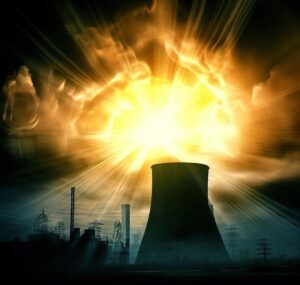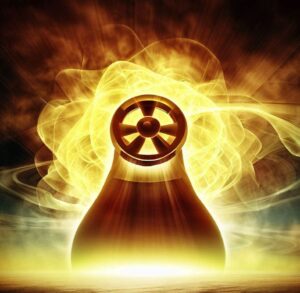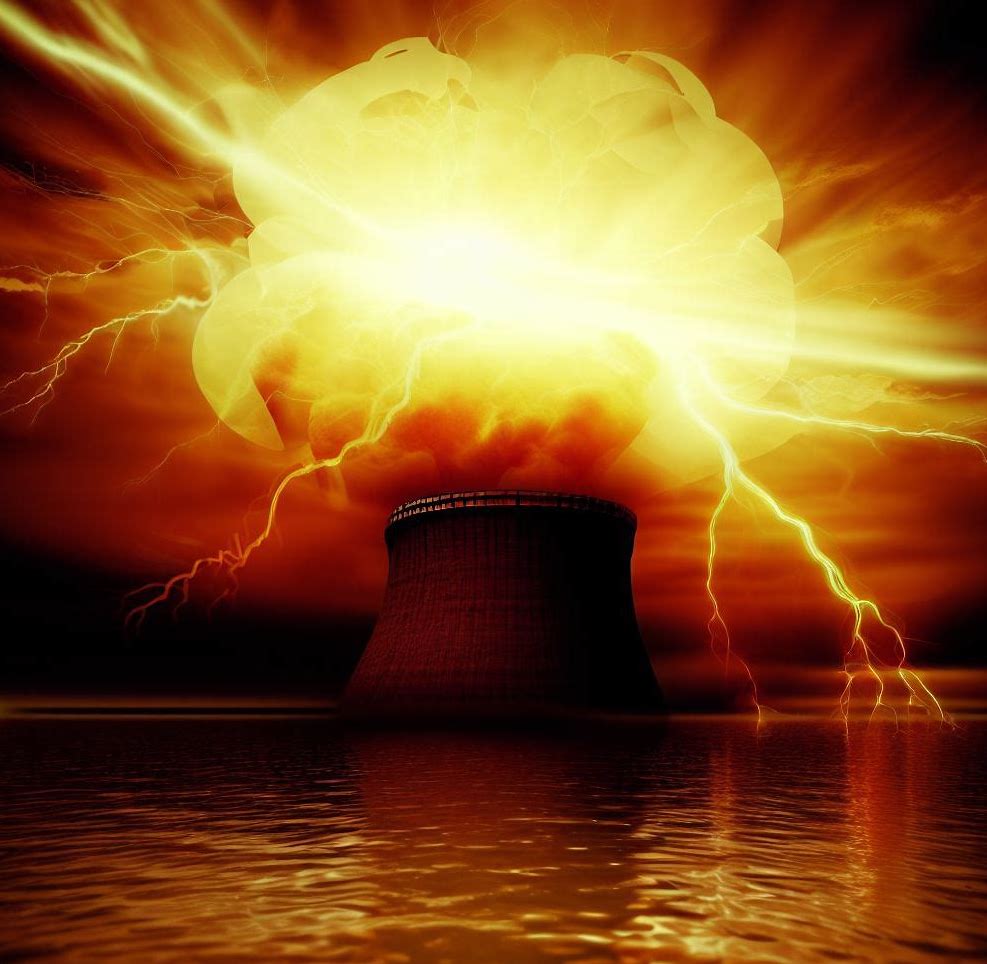Nuclear energy, holding vast potential, serves as a critical factor concerning world energy production. Understanding its aspects, advantages, and pitfalls are crucial for a sustainable energy future.
The Concept of Nuclear Energy
At the heart of nuclear energy is a process known as nuclear fission. This intricate procedure involves the splitting of atoms, specifically those of uranium or plutonium. These heavy atomic nuclei, when bombarded with neutrons, split apart in a controlled sequence, releasing an enormous amount of energy. This process occurs within the core of a nuclear reactor, where these heavy atoms are made to absorb loose neutrons, leading to the splitting of the core and the release of more neutrons. This then results in a chain reaction, where the released neutrons cause other atoms to split, continuing the cycle.

The energy released from this process is in the form of heat. This prodigious heat energy is then harnessed and used to convert water into steam. This steam is funneled into turbines, causing them to spin and thus generate electricity. This conversion is a common process across different power production methods. However, few – if any – yield as much energy as nuclear fission does from such a small amount of matter.
Nuclear energy’s journey from mere scientific novelty to a pillar of worldwide power production has been intricate, and characterized by immense advancements, both in theory and applied technology. The principle behind nuclear energy has been known since the late 19th century when scientists first began to understand atoms and their potential energy. However, it wasn’t until the 20th century when the scientific community began to exploit this knowledge, specifically for energy production.
The sustained and controlled chain reaction was one of the major breakthroughs realized in the mid-20th century. The development allowed the energy harnessed to be controlled, ensuring it could serve a practical purpose rather than cause a violent reaction. This marked the birth of civil nuclear energy production. The first successful operation of a fully functional nuclear power plant was a significant milestone. It validated theories and research, revealing how powerful of a tool nuclear energy could be in addressing the world’s energy needs.
Over the subsequent decades, thanks to tireless technological innovations and robust systems for safety and control, nuclear power plants have proliferated across the world, now serving as a primary energy source for numerous countries.
Benefits of Nuclear Energy
One of the most profound benefits of nuclear energy is its high energy output. In this domain, Nuclear energy considerably surpasses other energy sources. A prime example lies with uranium, the chief fuel for nuclear reactors. Even with a small amount, the energy yield is colossal – equivalent to burning thousands of tons of coal or barrels of oil. This potent energy generation potential, paired with nuclear fuel’s reasonable availability, ensures that nuclear energy can fulfill large-scale, pervasive energy requirements that today’s societies demand.
Environmental concerns are at the forefront of global discussions and initiatives today, and it is here that nuclear power makes perhaps its most compelling case. Unlike fossil fuel-based power plants, nuclear reactors do not combust any material, meaning they emit virtually no greenhouse gases into the atmosphere during operation. This attribute positions nuclear power as a valuable ally in the battle against climate change, providing a cleaner alternative to traditional energy sources that contribute to global warming.
Uranium, the primary fuel used in nuclear reactors, is relatively abundant across the globe. Unlike some renewable resources like hydropower or geothermal energy that are location-dependent, uranium can be mined in many regions, making it a more universally accessible resource. This geographical ubiquity bolsters the energy security of many nations, fostering self-reliance and diminishing dependency on foreign energy imports.
Another plus point for nuclear energy is the reliability of its power generation. While renewable energy sources have the limitation of being reliant on certain weather conditions and time of day (for example, solar panels requiring sunlight and wind turbines relying on wind), nuclear power plants can operate round the clock, irrespective of weather or geographical conditions. They can provide a steady, unfluctuating supply of power, which is a pivotal advantage in maintaining a robust and dependable energy grid.
The field of nuclear energy is buzzing with ongoing technological advancements. Modern techniques and developments have paved the way for safer and more efficient nuclear energy generation. Innovations in nuclear technology have enhanced reactor performance, safety standards, and waste management practices. Newer reactor designs promise greater fuel efficiency and inherently safe designs, potentially easing the associated fears around nuclear energy and opening new opportunities for a cleaner, more sustainable energy future.
Disadvantages of Nuclear Energy
While nuclear energy has its notable advantages, also has some significant drawbacks that can’t be overlooked. The foremost concern is the risk of catastrophic accidents at nuclear power plants. The incidents at Chernobyl in 1986 and Fukushima in 2011 serve as stark reminders of the immense damage a nuclear disaster can cause. Apart from the immediate devastation and loss of life, such accidents can lead to long-term environmental contamination and adverse health effects, whose ramifications continue to be seen decades after the event.

The management of radioactive waste is another conundrum tied to nuclear energy. The spent fuel from a nuclear power plant remains hazardous for tens of thousands of years and needs to be stored and managed extensively to prevent leaks and environmental contamination. The long-term storage and disposal of this waste remain unresolved issues, posing consistent challenges.
Additionally, while nuclear power plants offer the prospect of long-term energy security, they are expensive to initiate. The construction of nuclear power plants requires large-scale investment and extensive safety measures, making them far more costly than other types of power plants. These high upfront costs can be a deterrence to countries with limited resources.
The realm of nuclear energy also carries an inherent risk of nuclear weapons proliferation. The technology and materials used for producing nuclear energy can be manipulated to produce nuclear weapons, making it a potential threat to global security if they fall into the wrong hands. This raises the need for stringent international control and regulations.
Even though uranium is relatively abundant, it is still a finite resource. At the current rate of consumption and with known deposits, uranium supply is enough for a foreseeable future, but in the long run, there are serious sustainability concerns. Once these reserves are exhausted, alternative fuels or technologies will have to be developed. Though nuclear energy offers a potent solution to some current energy challenges, it is not a perpetual solution to the world’s energy needs.
Case Studies and Examples
Countries like France underscore the successful use of nuclear energy, with it representing a significant proportion of their national electricity generation. Conversely, the disaster examples of Chernobyl and Fukushima serve as reminders of the potential catastrophe nuclear energy can cause when things go wrong. Countries like Finland are setting examples in managing nuclear waste safely with their deep geological repository strategies.
Nuclear energy presents both promising prospects and challenges. The high energy output and low emissions make it an enticing option for addressing energy demands and combating climate change. Issues such as waste management, initial costs, potential for accidents, and the risk of weapons proliferation necessitate cautious consideration and responsible management. The future of nuclear energy ultimately hinges on our ability to maximize its benefits and mitigate its pitfalls.

